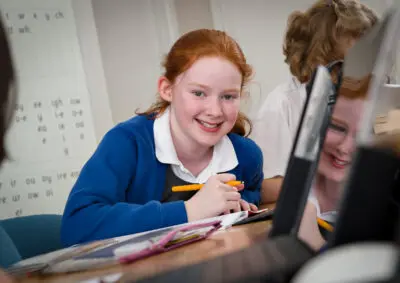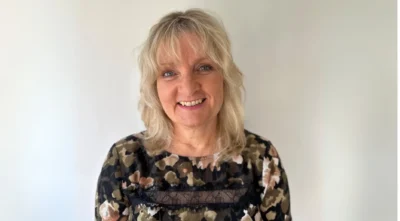We need to talk about talking: a step-by-step approach to language development
Georgina Cook, Education Specialist – Language & Literacy, Renaissance
Published
“The cohorts we are getting now are lockdown babies. They often don’t know how to play together or interact together, or take turns in conversations,” explains Genna Hitchin from Palace Fields Primary School in Runcorn.
Their speech, she goes on, is often poorly developed. “With a lot of our children it can be sentence structure,” she explains. “They speak of themselves in the third person, ‘Fred drinks water’ rather than ‘I drink water’. And tenses tend to be inaccurate – they often speak in the present tense.”
Genna’s pupils are some of the almost two million children estimated not to have reached their expected level in speech and language by the end of Reception – the highest number ever recorded. Our most recent report, Lost for Words, backed up those numbers. It found that half of teachers think up to 1 in 5 of their students have speech and language problems, and a further third thought up to 2 in 5 do.
No one seriously doubts how important language skills are. As Geoff Barton, chair of the Commission on Oracy in Education, says in our report, “Language matters. And in an age when everyone is cross about everything, high quality talk and active listening have never mattered more. We don’t want children to be victims who are ‘lost for words’. We want to give them agency in their learning, a voice in their future.”
Let’s start at the beginning
Language and literacy are the gateway skills that underpin understanding, communication and success across the curriculum – so understanding a child’s grasp of speech and language is the ideal place to start.
It is crucial that schools have a robust way of identifying and supporting language needs from the outset. Welcome to WellComm – our complete speech and language toolkit, from screening to intervention.
Teachers can use it to quickly assess every child’s language abilities as well as any challenges they may face as soon as they start school while the accompanying Big Book of Ideas provides teachers with appropriate interventions. Many can be applied in class, which means children don’t have to be removed, but it also supplies essential information if children have to be referred for specialist support.
Inspiring confident, curious readers
Accurate assessment is only part of the story, of course. Sustaining a love of reading and creating a language-rich culture in the classroom is equally important.
We provide a range of teaching and learning tools that support the teacher-directed daily practice that students need if they are to become fluent readers.
myON, for example, which is based on a digital library of over 7,000 high-quality, culturally diverse texts, provides an easy way to ensure literacy skills are practised in real time in the classroom and then developed further at home. And it’s ideal for young readers as the library includes a wide range of picture books with limited text to support early reading. Meanwhile Accelerated Reader is ideal for primary and secondary children as it guides them to books that are most likely to catch their interest while quizzes monitor their comprehension and build their literacy skills.
These kinds of tools seamlessly integrate language development into daily teaching practice by offering a range of materials designed to enrich teaching and enhance learning. And they not only deepen teachers’ professional expertise but also ensure that students have the language tools they need to access the curriculum and develop both academically and socially.
The bigger picture
How do we address language development beyond the confines of the curriculum?
Measures like PASS (our Pupil Attitudes to Self and School attitudinal survey) provide insights into students’ perceptions of themselves and their school, which all play an important part in students’ confidence and their language journey.
Analysis we conducted with PASS and one of our reading assessments found that specific attitudes and reading attainment are linked – namely low self-regard, poor motivation, unpreparedness for learning and a lack of confidence in their own learning capabilities.
Our research also showed that girls appear to be particularly hard on themselves compared to boys when it comes to saying that they do not know the meaning of lots of words (27% compared to 21%) and they are also less likely than boys to agree strongly that they are clever (27% vs 34%), even though girls significantly outperform boys at every key stage.
Of course, once these issues are known, there are plenty of measures schools can take to address them and build students’ confidence – our PASS interventions are a good place to start.
Empowering learners at every stage
At Renaissance, we believe that every student deserves the opportunity to develop their language and literacy skills to their fullest potential.
Our assessments and teaching and learning tools ensure teachers have what they need to create a language-rich environment where every student can thrive. By providing you with robust, reliable data and engaging language resources, we want to help you pave the way for a brighter future for all students.

